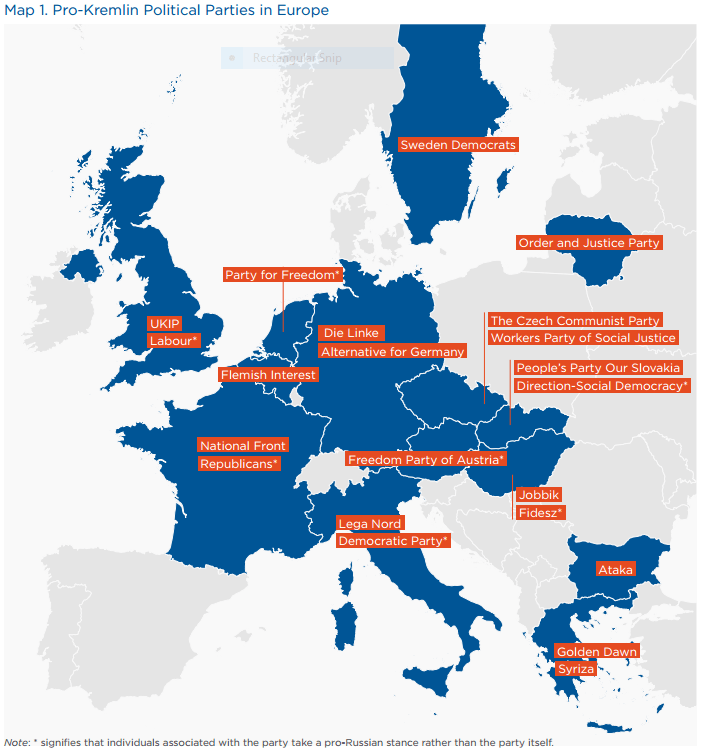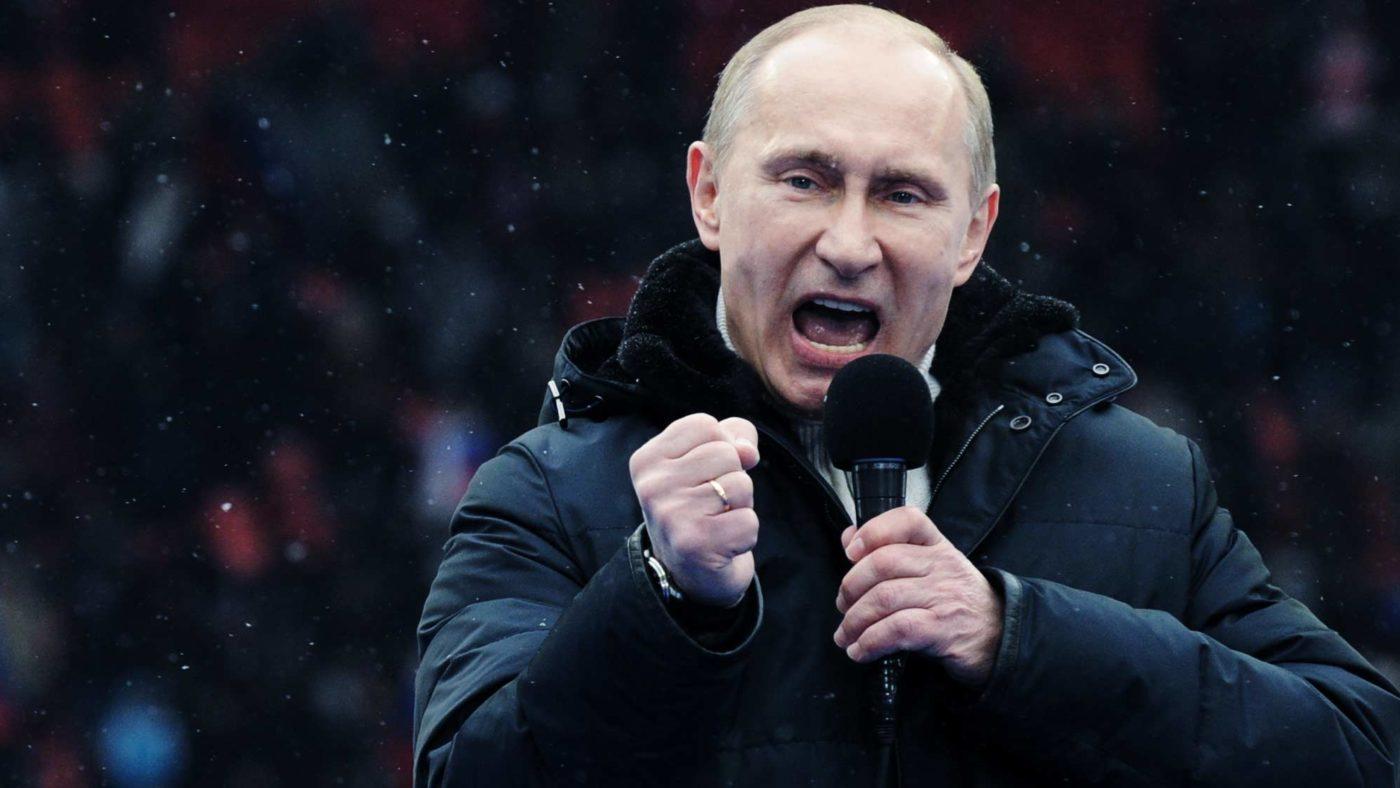In 2014, Russia seized Crimea through military force. With this act, the Kremlin redrew the political map of Europe and upended the rules of the acknowledged international order.
Despite the threat Russia’s revanchist policies pose to European stability and established international law, some European politicians, experts, and civic groups have expressed support for—or sympathy with—the Kremlin’s actions.
These allies represent a diverse network of political influence reaching deep into Europe’s core. The Kremlin uses these Trojan horses to destabilise European politics so efficiently, that even Russia’s limited might could become a decisive factor in matters of European and international security.
President Putin increasingly sees that which the West seeks—Europe whole, free, and at peace—not as an opportunity for prosperous coexistence but as a threat to his geopolitical agenda and regime survival.
Moscow views the West’s virtues—pluralism and openness—as vulnerabilities to be exploited. Its tactics are asymmetrical, subversive, and not easily confronted.
Western governments have ignored the threat from Putin’s covert allies for too long, but finally, awareness is growing that the transatlantic community must do more to defend its values and institutions.

To that end, Western governments should encourage and fund investigative civil society groups and media that will work to shed light on the Kremlin’s dark networks.
European Union member states should consider establishing counter-influence task forces, whose function would be to examine financial and political links between the Kremlin and domestic business and political groups.
American and European intelligence agencies should coordinate their investigative efforts through better intelligence sharing.
Financial regulators should be empowered to investigate the financial networks that allow authoritarian regimes to export corruption to the West.
Electoral rules should be amended, so that publically funded political groups, primarily political parties, should at the very least be required to report their sources of funding.
The Kremlin’s blatant attempts to influence and disrupt the US presidential election should serve as an inspiration for a democratic push back.
This is the foreward to the Atlantic Council’s new report, ‘The Kremlin’s Trojan Horses: Russian influence in France, Germany and the United Kingdom’


